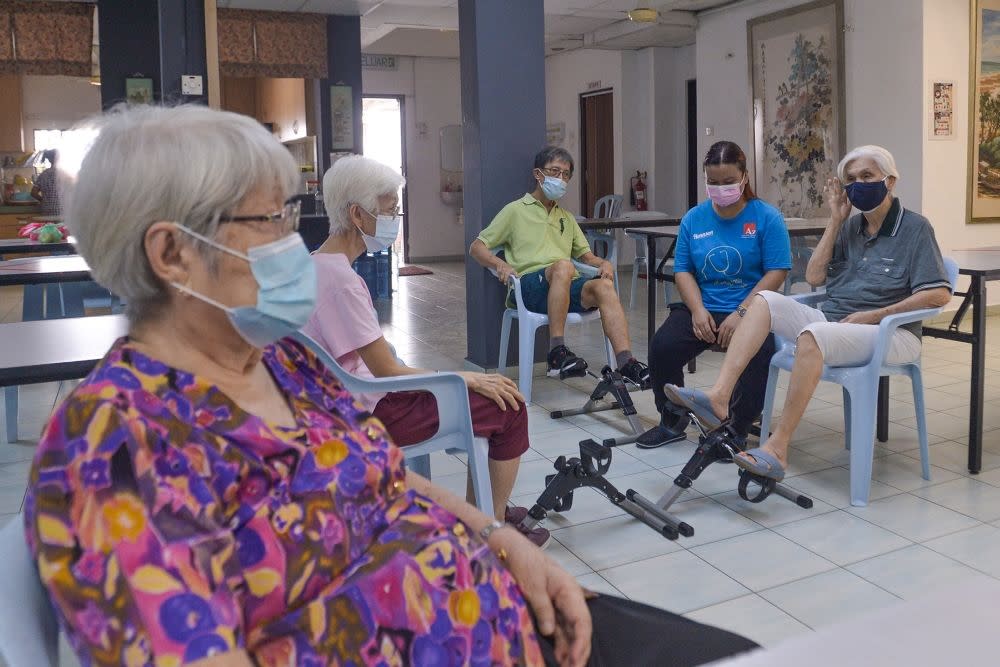Mental Capacity Act: Why does Malaysia need it and who will benefit from it?

KUALA LUMPUR, June 1 — According to he Department of Statistics’ estimates, Malaysians aged over 65 will account for 7.4 per cent of the country’s total population this year.
A 2020 World Bank study projected that this figure would double in two decades, and exceed 20 per cent by 2056, effectively making Malaysia a super-aged nation.
To address this, Deputy Minister in the Prime Minister’s Department (Law and Institutional Reform) M. Kulasegaran said the government is planning to introduce a Mental Capacity Act (MCA) this year.
He said such a law was needed to prepare for a growing incidence of mental incapacity as Malaysia moves from an ageing population to aged and super-aged.
Similar laws already exist in other countries including the United Kingdom that enacted its version in 2005, Singapore in 2008, and India in 2017, among others.
According to Medico-Legal Society of Malaysia president Shanti Abraham, the proposed law has been discussed for the last 15 years and was due to be formalised in law.
What is a mental capacity law?
In the UK, the law was designed to protect and empower individuals who may lack the mental capacity or ability to decide on their own care and treatment, medical or otherwise.
Malaysia’s version aims to provide similar authority and protections to Malaysians under the same circumstances, for instance letting them lay out the management of their affairs — such as advance medical directives, who can make legal decisions on their behalf and the management of their property — using a lasting power of attorney (LPA), in the event they ever become mentally incapacitated.
What is a lasting power of attorney?
A core element of the proposed law is the LPA.
Under normal circumstances, an individual (the donor) may obtain a power of attorney to authorise another (the donee) to act on their behalf.
A power of attorney is a legal document that permits the appointee to conduct private and business affairs on behalf of the donor.
The problem, however, is that the power of attorney becomes ineffective when the donor suffers mental incapacity. Section 5 of the Power of Attorney Act 1949 states that a Power of Attorney duly registered and deposited with the High Court is valid and shall continue to be in force until, among other things, where the donor has been adjudged to be of unsound mind.
Effectively, Malaysia does not recognise lasting power of attorney, which the proposed mental capacity law aims to address.
A LPA would give a donee permanent authority to decide on the donor’s finances, health and personal matters, and — crucially — would also only come into effect if the donor is deemed to have lost mental capacity to make decisions for themselves.
Who does it help?
The proposed law would plainly allow healthy individuals in possession of their mental faculties to make preparations both as precaution or in anticipation of future incapacity.
However, it would also importantly allow a guardian to make similar preparations for a child or ward that was already mentally incapacitated.
For example, in the case of an adult already experiencing advanced Alzheirmer’s or a child born with debilitating autism, the mental capacity law would allow the legal guardian to prepare a LPA for the care of their wards, in the event of their own demise or incapacity.
Other examples of individuals who could benefit from the law include adults with cognitive impairment, which could be a deficiency of a person’s short- or long-term memory, their orientation to others, place, or time to the point of affecting the judgement and ability to make rational decisions on their safety and wellbeing.
Further categories would include dementia patients, stroke patients, people who have limited cognitive abilities due to accident or illness, temporarily impaired adults and autistic adults who unable to make their own decisions.
Another group is vulnerable adults. While Malaysia does not yet have elder law, this category would define the group as adults unable to protect themselves from abuse, neglect or self-neglect due to mental impairment.
A vulnerable adult can still make their own decisions, but need protection from being manipulated into harmful decisions by, for example, family members, lawyers, doctors and accountant, among others.
Singapore’s Vulnerable Adults Act 2018, for instance, safeguards vulnerable adults from abuse, neglect or self-neglect and provides for matters connected with that.
A public guardian system
Under UK’s Mental Capacity Act, a public guardian is responsible for supporting individuals and help them plan ahead do that their health, welfare and financial decisions will be taken care of if they lose mental capacity and to safeguard the interests of people who may lack the mental capacity to make certain decisions for themselves.
A public guardian has a legal duty to supervise deputies appointed by the UK’s Court of Protection and to investigate complaints or concerns about the actions of deputies, registered attorneys and people acting under the Court of Protection.
For Malaysia’s implementation, experts have proposed a formalised system to verify and register official decisions and documents, preventing incidents where a child may claim to be acting on behalf of their parents or claim to have power of attorney without demonstrating so.
On Tuesday, Kulasegaran said that the government is aiming to table a Mental Capacity Bill in Parliament before the year ends.
He said consultation on the proposed law has gone on for years and it was time for this to manifest.
He added that the legislation would complement the Mental Health Act 2001, which may only be used when the person is already mentally incapacitated.



